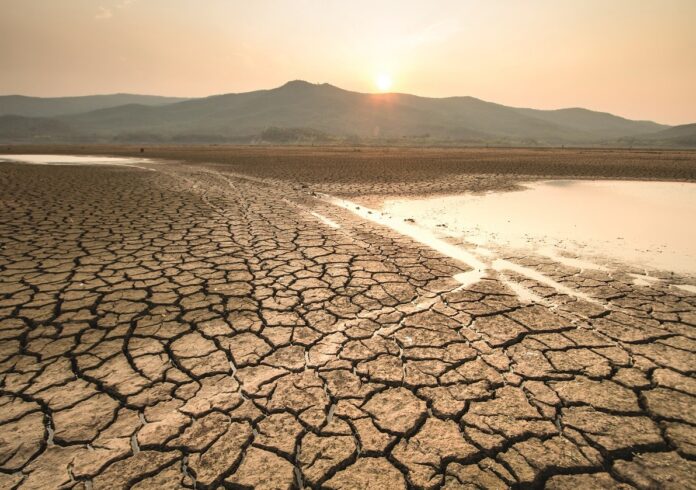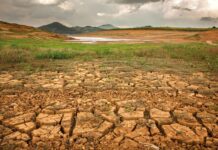The United Nations’ (UN’s) Mid-term Review of the Water Action Decade: Key messages from the United Nations Regional Commissions report was released at the UN 2023 Water Conference in New York in the USA. The report serves as a marker of progress towards the three goals of the Water Action Decade, to:
- Advance sustainable development and integrated management of water resources for the achievement of social, economic, and environmental objectives
- Energise implementation of related programmes and projects
- Inspire action to achieve internationally agreed upon water-related goals and targets, including those contained in the 2030 Agenda for Sustainable Development, through enhanced cooperation and partnerships.
Based on the input of the five UN Regional Commissions and the UN-Water regional discussion groups, the report aims to showcase progress, opportunities and challenges identified in the regions of Africa, the Arab region, Asia and the Pacific, Europe, North America and Central Asia, and Latin America and the Caribbean, aligned with the Sustainable Development Goals (SDGs), most specifically SDG 6, which focuses on the provision of access to clean water and sanitation.
As a mid-term review, the report highlights the urgent need for global action, with all regions facing challenging statistics. The continent of Africa is lagging in progress towards many SDG targets and the objectives of the African Union’s Agenda 2063 because of an increase in population, development making demands on resources, climate change, and the costs of the pandemic. The latest Water and Sanitation Sector Monitoring and Reporting System report shows that, of a population of 1.3 billion, 418 million lack basic drinking water services, 779 million lack basic sanitation services, and 839 million still lack basic hygiene services.
The report cites that in the Arab region, in 2020, more than 49 million people did not have access to basic drinking water facilities and more than 72 million lacked access to basic sanitation services.
While the Asia-Pacific region has made considerable progress on improving economic and social welfare over the past decade, the region is currently not on track to achieve any of the SDG 6 targets by 2030, with the greatest threat down to water scarcity, with much of the resources devoted to agriculture to support the food security of a growing population.
Europe, North America and Central Asia have made great progress in delivering safe drinking water and sanitation, but the report finds that efforts to protect and restore essential water-related ecosystems are disparate across the region, with degradation of lakes, rivers and wetlands occurring in many countries and basins, including the fragmentation of river systems and increasing pollution of water bodies.
The report also finds that the availability of freshwater resources is changing, driven by economic development and climate change. Diffuse pollution and wastewater discharges remain significant and floods and droughts in 2022 showed the severity of the impact of climate change on water.
In Latin America and the Caribbean, one in four people do not have access to safely managed drinking water (161 million people), and seven out of 10 do not have access to safely managed sanitation (431 million people). The report finds that, at the current rate of progress, SDG 6 will not be achieved by 2030.
While this mid-term review highlights the failures to grapple with the global water and sanitation crisis, it offers the opportunity to take stock, look at the goals of the Water Action Decade, and plan to address the requirements of each region.
The review finds that, despite the five regions’ vastly different levels of access to water resources, there are a considerable number of similarities in both key issues and recommendations for progress. The report highlights the following key issues as common themes between the five regions:
Climate change: As regions face the changing nature of the climate and its impacts on water resources, there is a consensus that more transboundary collaboration is required, supported by data, finance, adaptation and mitigation.
Integrated Water Resource Management (IWRM) and siloed policy making: The report finds that IWRM is challenging because of siloed policymaking, weak monitoring, poor intersectoral coordination, inadequate data, and lack of resources. It calls for more systematic approaches to IWRM policymaking that considers the wide range of sectors and innovative approaches to managing competing priorities.
Water scarcity: All of the regions experience varying degrees of water scarcity. In the African and the Arab regions, water scarcity has long been a persistent challenge. However, regions that have been considered water-rich are now experiencing water scarcity. The report finds that overuse and water pollution are largely driven by the growing demands of population, economy, industry and agriculture. The report calls for innovative water use and better data to improve water management.
Water pollution: The report finds that global population growth and industrialisation will impact all five regions, leading to increased water pollution. It recommends pollution is tackled at source.
Transboundary cooperation: The report calls for greater cooperation over shared water resources.
The urban-rural divide in WASH delivery: The report calls for policies and investment focused on flattening inequalities between urban and rural areas, as well as inequalities linked to affordability and access by vulnerable groups. It recommends that the health of water resources be prioritised against the competing demands of population growth and economic growth, and calls for water resource management to be approached in an integrated manner, with informed policy and decision-making processes based on accurate data.
Although the mid-term review highlights vast gaps in delivery, it has provided the opportunity for each region to take a close look at the dynamics that are stymying progress and approach these challenges with a plan of action. Each region now has a roadmap for delivering SDG 6, but swift action is required to avoid current plans being overtaken by increased demand because of population, industrialisation, and climate change. There is an imperative for smart, swift action.
By Erika Yarrow-Soden
More information
See:https://unece.org/info/publications/pub/379008








